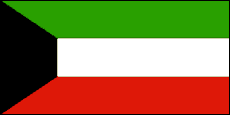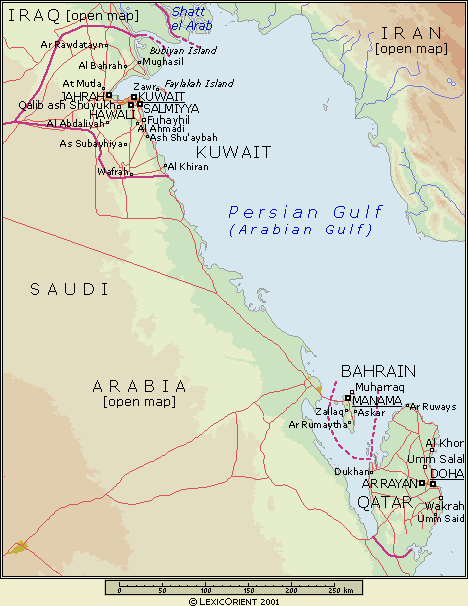Kuwait: The Deductive View Of and For Political Activists

Fast Facts About Kuwait
population of 2.2 million
average household income of US$22,000(not far below the US median income)
GDP of US$36.2 billion
unemployment rate of only 1.8%(far lower than US)
literacy rate of 77%
free healthcare to all citizens
largely Sunni Muslim (60%)
being Islamic is a requirement for citizenship
very high standards of education

Kuwait's History
Click Here for timeline
Settlements in the land now known as Kuwait are only 300 years old. Kuwait is but 9% arable, so until the global hunger for oil, Kuwait was weak, poor, and barely populated. The Ottoman Empire claimed rights to the land until 1899 when Britain signed an agreement to protect Kuwait from the Turks. It wasn't until 1961 that they gained independence from Britain. The Kuwaiti Constitution is also only forty years old.
Answering the calls of Western powers for increased oil production since the 19th century, Kuwait after independence found itself a wealthy state. The 1980's showed a relationship between American gross misuse of oil resources and Kuwaiti readiness to export any amount able to be bought. The Iraqi dictator, Saddam, took notice of the excess exports and claimed thievery. It was Iraq's contention that oil was being stolen from their fields and sold by Kuwait. Whether or not this is true is unproven, but it is certain that the amount of oil being exported was a violation of the oil production limits set by OPEC (organization of the petroleum exporting countries).
Kuwait is rich in amenities these days, but it is not a hallmark of Arab Democracy by any stretch of the imagination. Only 10% of its citizens have suffrage. Women can not vote, and neither can Christians as all citizens must be Muslim. They have what is referred to as a Monarchical Democracy. 'Democracy' means something different to everyone these days.
Kuwait has two assets. One, it is very rich in oil. It is estimated that ten percent of the world's oil reserves are in this itty-bitty country (roughly the size of Vermont). And two, its geographic position at the mouth of the Persian Gulf makes it a route-friendly trade partner with the oil consuming world.
With all this known, the US protection of Kuwait and continued military presence there must be oil-related. Anyone naive enough to believe that the US did in the early nineties a service to Arabs and humanity is fooling themselves. With an entire, successful economy based almost completely on the mining and refining of oil, Kuwait is quite valuable to the US. Not only can the US grab fuel, it can in turn sell American products in the developed economy; thereby adjusting the trade deficit and creating a reciprocal relationship.
Americans seem inclined to consider whatever is fed to them as news, but it must never be forgotten that people die for oil. People die for the rich man's oil. Serious funding for alternative energy research might have by now saved these lives, but oil interested men consider this a danger to their murderous livelihood.